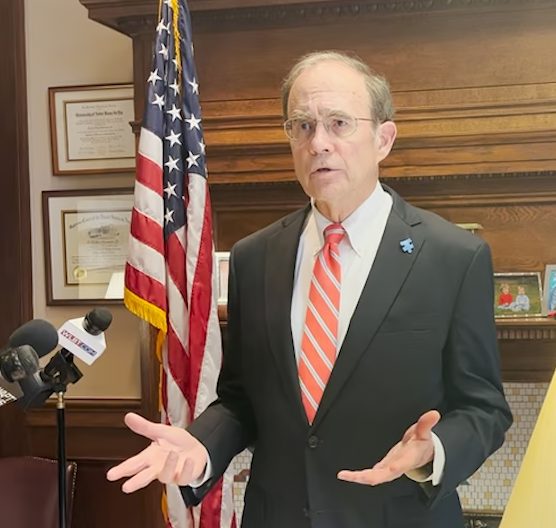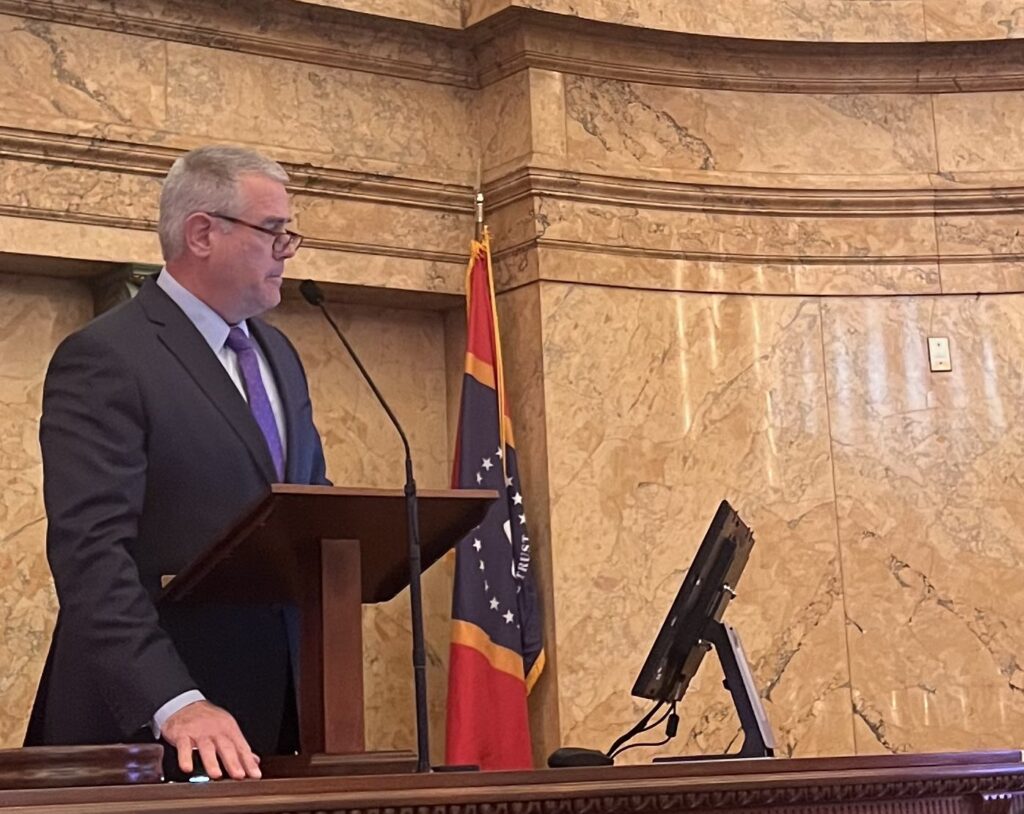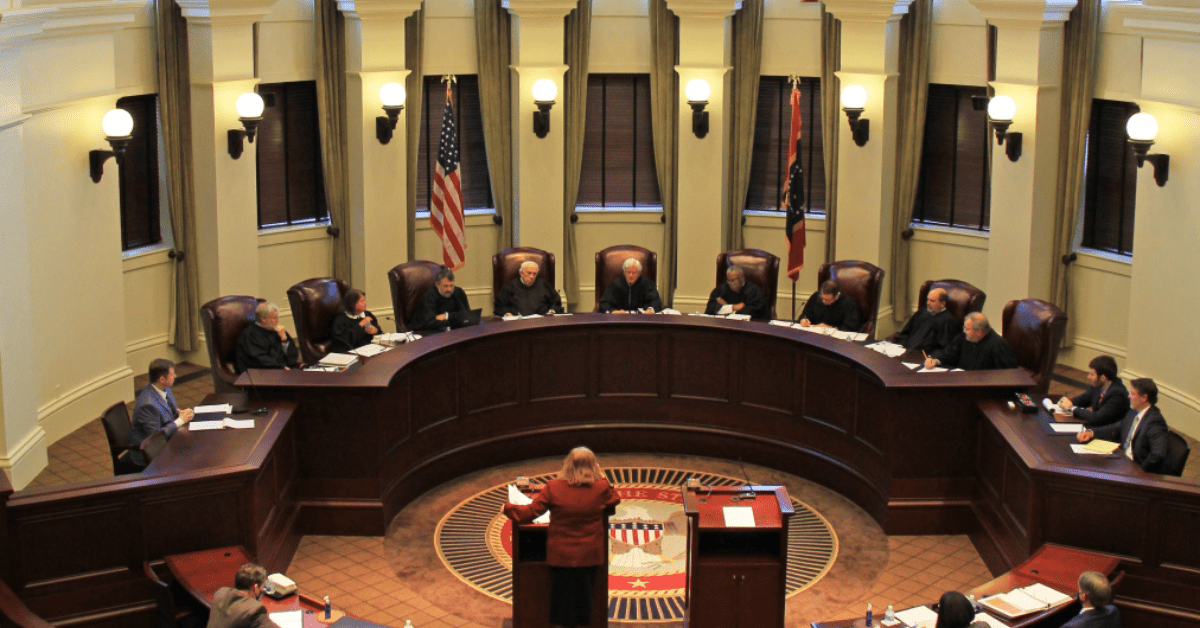
Mississippi State Capitol
Priorities include considering a modified school year, postpartum care, returning more money to Mississippians and addressing issues in the adoption and foster care process.
Lawmakers gaveled in Tuesday at the Mississippi State Capitol for the start of the 2023 Legislative session. The House and Senate will work for 90 days, give or take, to establish policy pertaining to issues that impact Mississippians.
Over the last few months, lawmakers have held hearings with experts on several policy issues that could be debated this session.
Senators have engaged in conversation about policy changes that could impact families across the state, particularly mothers, when it comes to postpartum care, childcare costs, maternity leave and early childhood intervention.
During the time out of session, the Mississippi Democratic Caucus has raised concerns regarding the oversight to the disbursement of federal funds, namely TANF.
Senator Hob Bryan has hosted a series of hearings to address issues in Mississippi’s healthcare system as more rural hospitals near closure, potentially impacting access to care across the state.

Lt. Governor Delbert Hosemann discussed his priorities for session during the holiday season and reinforced those topics prior to convening this week.
Hosemann said the Senate is focused on looking at modified calendars for schools and believes that legislation will come “quite early on” in the session. The Lt. Governor also noted that senators have passed a postpartum care coverage bill three times.
Hosemann expects a postpartum care bill to come from the Senate and is hopeful that the House will review it.
“These are working women,” Hosemann said. “We’re not talking about people that are not working in Mississippi, we have some of those, but those are already covered. We’re talking about working women that have children.”
He added that he would like to see another $100 million go towards the Emergency Road and Bridge Repair Fund.
“In addition to that, we have a significant amount of money here,” Hosemann said. “The dollars are over $1 billion, $1.4 billion, from last year. We’d like to give the money back that individuals pay here on the income tax, we think that’s an immediate necessity.”
Lt. Governor Hosemann said that the Legislature will also take up pay raises or compensation increases for state employees. He then discussed the Senate’s position on the elimination of the state’s income tax.
Hosemann said he is not necessarily opposed to some longer-term income tax relief and noted that he likes sales tax relief on groceries.
“I want to make sure that we’re not going to do something that we’re going to have to come back later and take pay raises away from teachers,” Hosemann said. “I think a longer-term view of that is part of that and the Senate has looked at other things which include the grocery tax for example. So there’s some give and take there certainly and I’m not opposed to eliminating the income tax, I just want to make sure we got enough to pay our bills and we stay consistent to where we are.”
Hosemann said lawmakers need to be very careful doing things short-term for an election year.
Speaker of the House Philip Gunn, who has announced that this will be his last year in the Legislature, said Representatives will likely bring up another component of tax reform this session. In 2022, the Legislature passed what is considered the largest tax cut in the state’s history with the phased-out elimination of the 4% income tax bracket.

“I think the number one thing that we are looking at is the surplus that we have. A lot of revenues that continue to come in I think the states in great financial shape,” said Gunn. “I think we are going to have much discussion in how to spend those dollars and where we are going to place those dollars.”
Gunn echoed similar sentiments with the surplus as Hosemann, saying he would like to see an opportunity to return even more money to the taxpayer.
In a “post Roe v. Wade world,” Gunn said, House members are looking at ways to make adoption more efficient and affordable. He said representatives have also put a focus on the way in which foster care functions while supporting crisis pregnancy centers.
Gunn said he is still opposed to the expansion of Medicaid, language he considers in line with the Senate’s push to extend postpartum care coverage up to 12 months for women. He said the Division of Medicaid has the authority to offer this now, and has not, and referred the issue to the experts instead of it being handled legislatively.
“It seems to me, if they were a proponent of that, they would issue a statement in support of that, encouraging that, or they may have done it on their own. The fact that they haven’t indicates that they are not in support of it,” said Gunn.
It is anticipated that this policy change regarding Medicaid will be brought forward from the Senate side. Gunn said the House will make the decision based upon data but did not give a clear indication if it could come before the full chamber for a vote.
Bills have already begun to be filed and hundreds can be expected before next week. The first deadline is on Wednesday, January 9th for any requests for the drafting of general bills or constitutional amendments.











